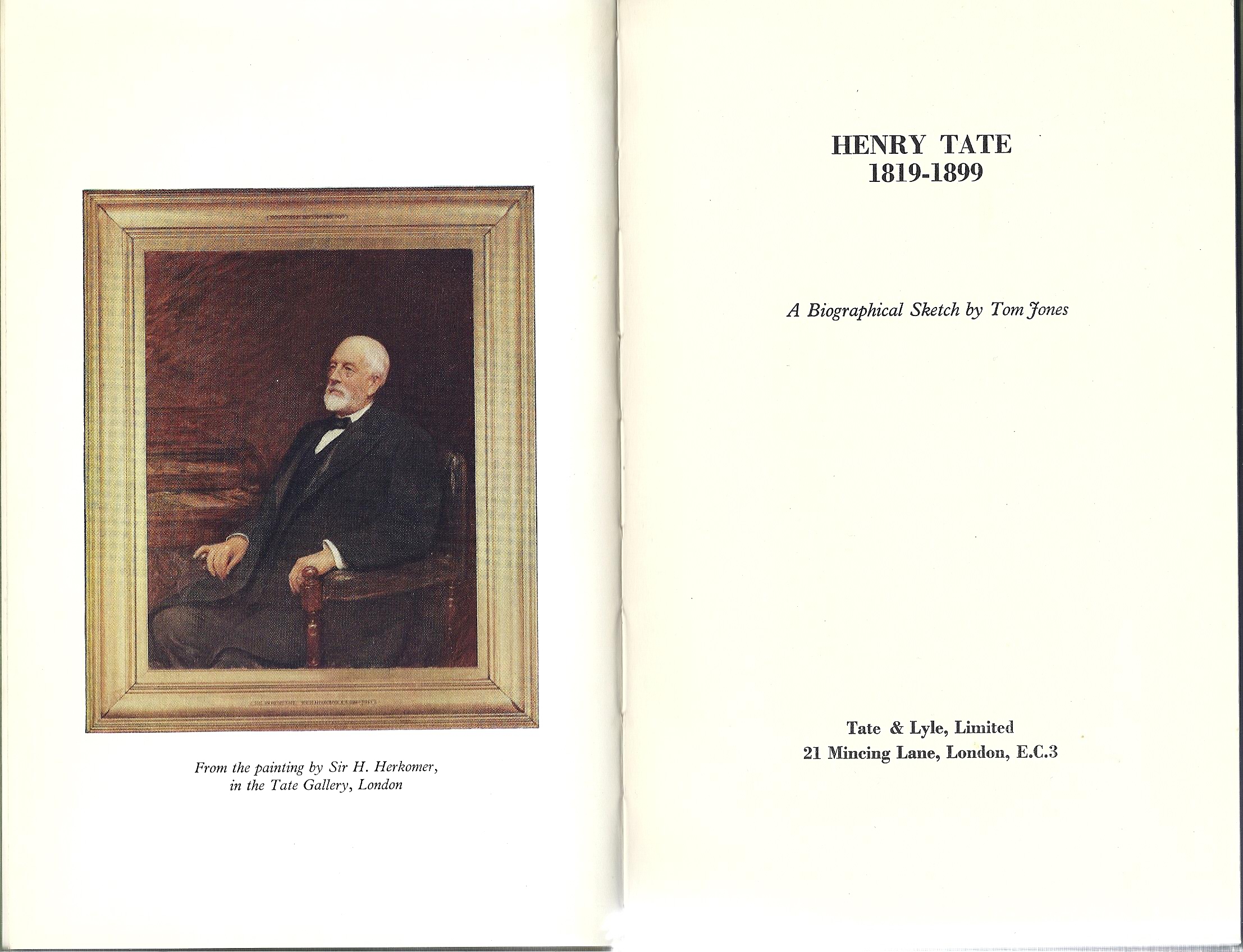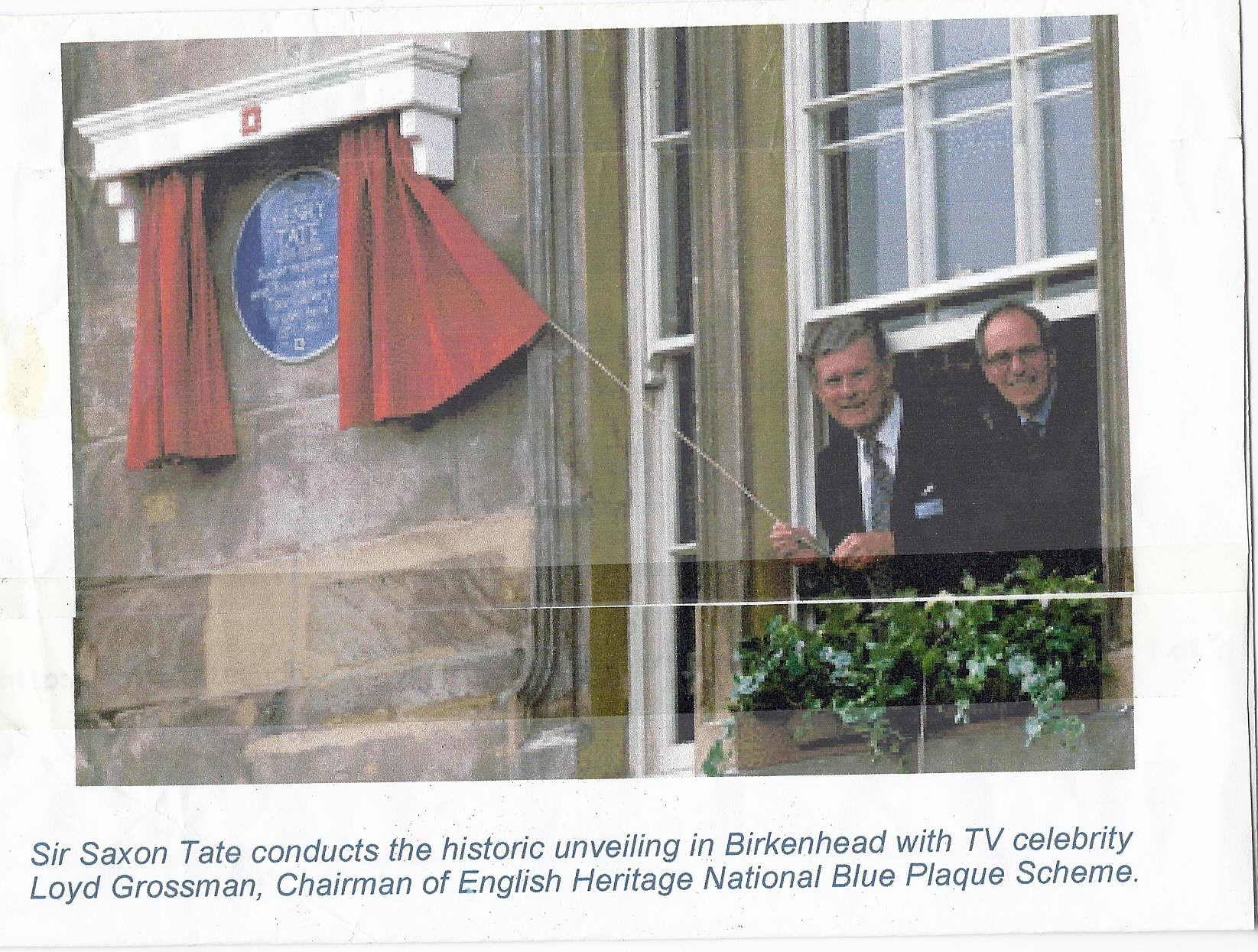Love Lane Lives
The history of sugar in Liverpool and the effects of the closure of the Tate & Lyle sugar refinery, Love Lane
The death of Saxon Tate & one of the last of the Tates to serve an apprenticeship in Love Lane
Written by Ron Noon at 23:14 on Tuesday, October 02nd 2012

In January 2011 on the 30th anniversary of the issuing of the 90 day redundancy notices I wrote a blog which concluded in this way:
I’ll close my blog on this historic day with a reminder of how the giant sugar transnational was very much unaffected by local sentiments and even what local managers thought. One of the last of the Tates to go through “the Sugar Mill” was Saxon Tate and Albert E Sloane said that he was a really nice man who most people respected and liked when he “served his apprenticeship” in the Lane! (Saxy was an old Etonian as a young man but young men whether they were from Eton or not had to do a stint getting to know the process,and their workers experiences.)
Tate & Lyle’s management style was consistent with a global trend that had been evolving since the mid 1970s and it was in the 70s that Lord Jellicoe took over as the first outside Chairman of the company. (1978) The ideological baggage of tradition and paternalism was rapidly shunted to the sidelines when Saxon Tate and the “family spirit” gave way to an outsider chairman and Neil Shaw as group managing director.
The appointment of Lord Jellicoe in 1978 as Chief Executive, was very much at the expense of Saxon Tate, the “family” man who had been expected to take control when John Lyle stood down as Chairman. Jellicoe was an outsider who had only been on the board for four years whereas Saxon Tate had served a long and profitable apprenticeship with the Canadian subsidiary Redpath Sugars. From 1972 he had “for all intents and purposes” run the Tate & Lyle group. The introduction of modern methods of management and “the first touch of professionalism from within the board” was directly attributed to his regime. Consequently the consolation job of Group Managing Director, albeit under a son of the “victor” of the naval battle of Jutland, seemed scant reward for such endeavours. The fates seemed to be conspiring against Saxon Tate when in June 1980 he was given the honorary post of Vice Chairman. It was a poignant moment when his executive functions were all stripped away. An even crueller irony was to follow, with the appointment of the Canadian, Neil Shaw as Group Managing Director. This was clearly a reminder if one were still needed that a new day had indeed dawned for the sugar multi-national.
The first time Shaw had taken over from Saxon Tate was at Redpath when both their stars were in the ascendant, but the former subaltern now overshadowed not only the old Etonian, Oxbridge educated, former Life Guards officer, but also the “family spirit” as well. Along with Saxon Tate, the ideological baggage of tradition and paternalism was rapidly shunted to the sidelines. The following year Lord Jellicoe, as Chairman of a Board of Directors “on which there was, symbolically, neither a Tate nor a Lyle”, made the announcement that Love Lane was to close. “Thus the history of sugar refining in Liverpool was to come to an end at the beginning of 1981, after over 150 years of ‘good and loyal services’, owing to the ‘treachery’ committed by a firm which had been born there a little over a century earlier.” (That was Phillipe Chalmin’s comment in THE MAKING OF A SUGAR GIANT. Ironically what we have witnessed this year with the sale of Tate & Lyle sugars to the American Refining Company is it’s UNMAKING.)
Increasingly global perspectives meant that there was a corresponding withering away of national or local roots or loyalties. Much of that was evident before Neil Shaw took over as Group Managing Director, but under him the metamorphosis from what Chalmin describes as a “family and moral community” into a financial community was completed. Shaw had first been appointed to the Board in 1975 but by the mid 1980s he would assume an unprecedented position of power as the company’s first ever Chairman and Chief Executive.
The concept of the rootless firm without national identity, searching the world for low wages and union free environments is not without some substance but most multi-nationals are still locked by culture, tradition and staff into one nationality. The British based Tate and Lyle has witnessed a number of organisational shifts which severely compromised its historic “paternalistic” image. The end of sugar cane time in Liverpool and the blighting of an inner city community was the most dramatic consequence of that change, and was distinctly emblematic of the “soulless global corporation” that Henry Tate, the entrepreneur and philanthropist had unintentionally bequeathed to the world.
Here’s the link to the obituary that appeared in today’s Telegraph
http://www.telegraph.co.uk/news/obituaries/finance-obituaries/9523685/Sir-Saxon-Tate-Bt.html

Sir Henry Tate started his business empire. The plaque at 42 Hamilton Street Birkenhead – now home to the Wirral Methodist Housing Association – was unveiled by Sir Henry’s great, great grandson, Sir Saxon Tate. Sir Henry acquired the shop in 1851 and equipped it with mahogany counters, sets of spice drawers and a window through which he could keep an eye on his staff while he wrote up the accounts.
At the ceremony, Sir Saxon said: ‘Sir Henry was a great philanthropist and entrepreneur, as generous as he was ambitious and forward thinking. Famed in his day for patenting sugar cubes, even he could not have foreseen the global success of Tate & Lyle, and the national and international importance of the Tate gallery’”.
TATE & LYLE WORLD NOV/DEC 2001 - headline “Heritage honoured” page 7